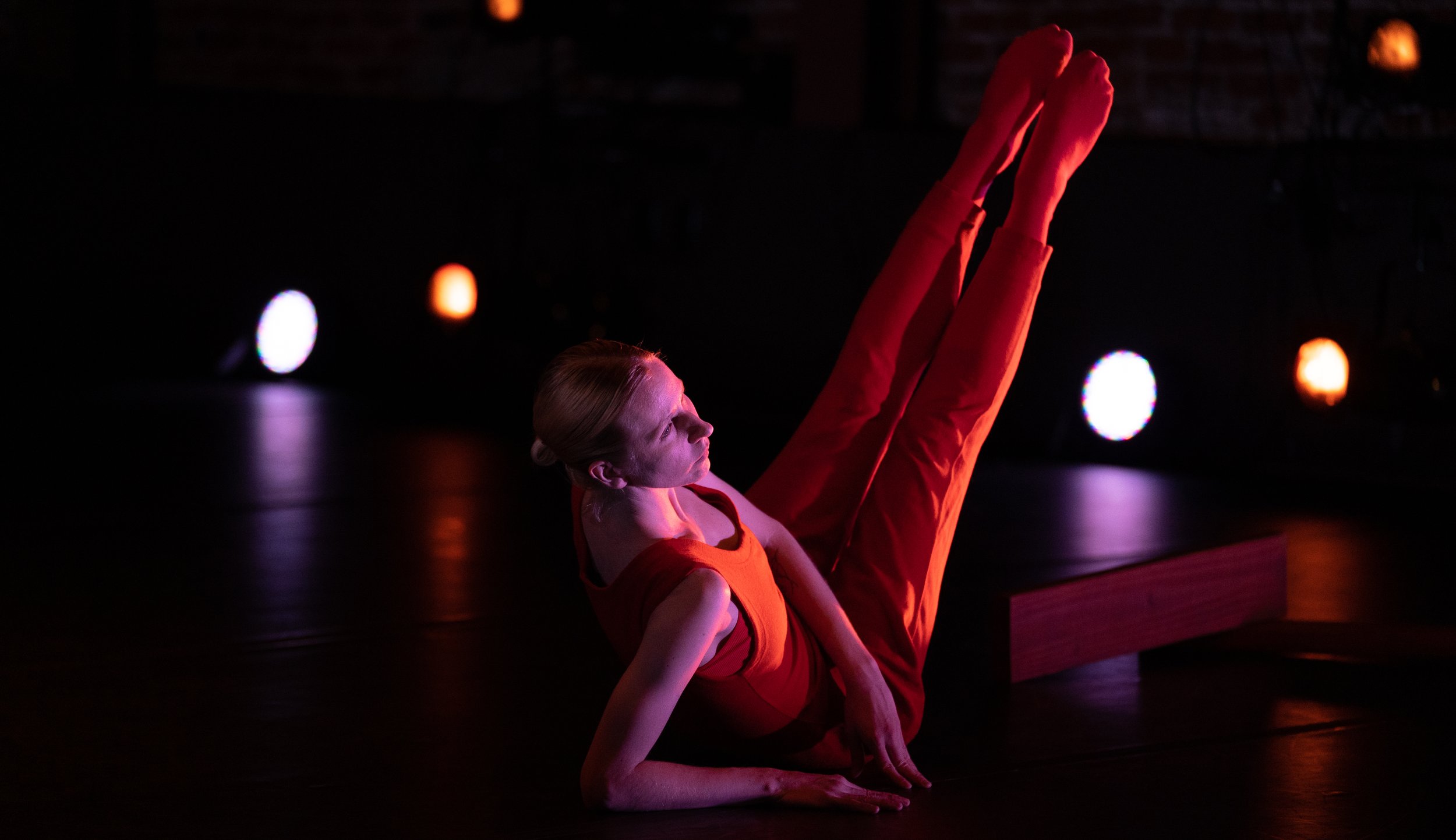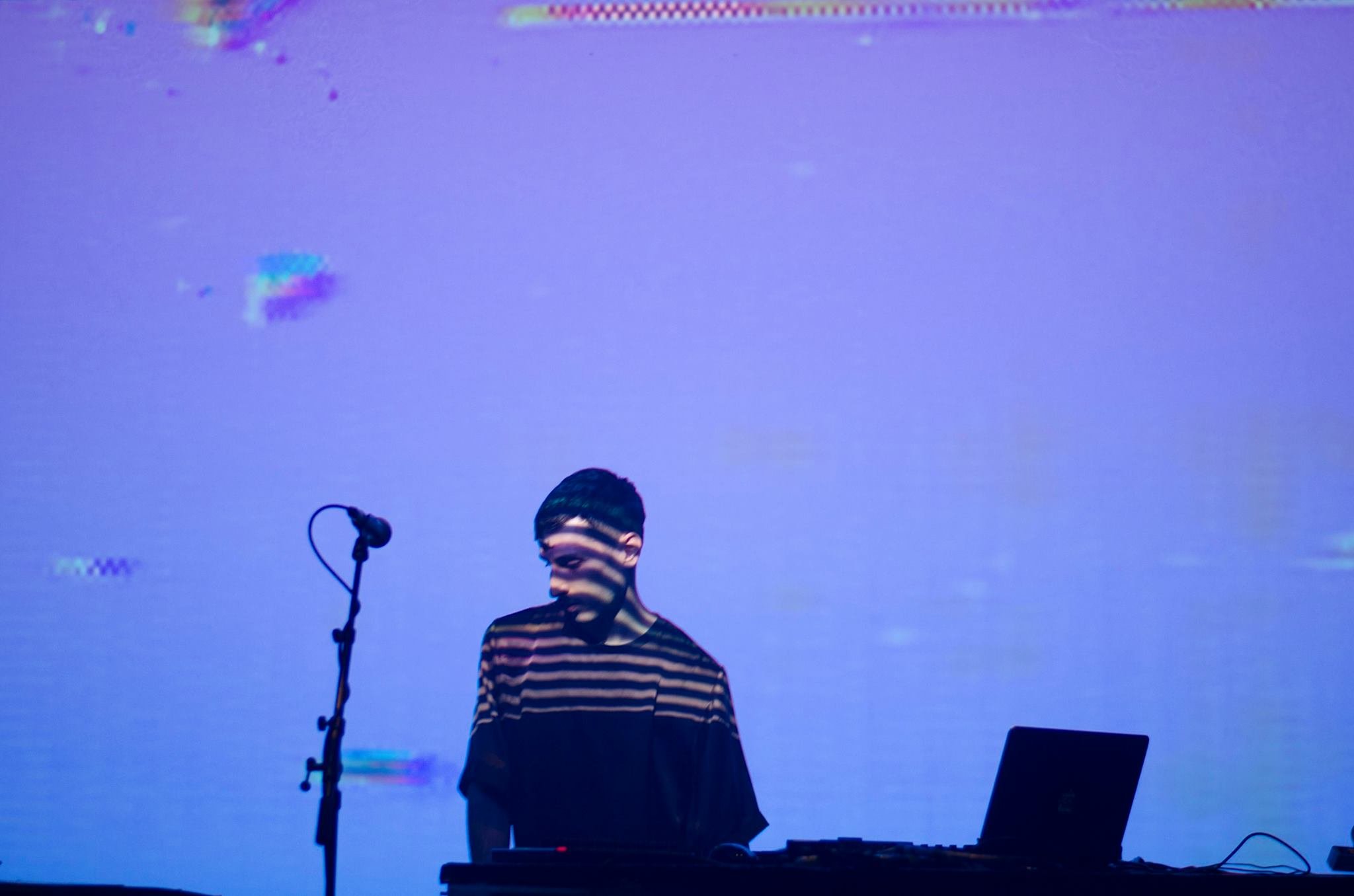About
Founded by Heather Stewart (she/they) in 2020, little house is a professional dance company established on principles of democratic process, collaboration, sustainability, and high caliber dance performance in service of a strong arts ecosystem in Maine. After several years of working as an independent artist Heather established little house in order to formalize her collaborative relationships with other dancers, musicians, visual artists, and writers. As an organization, little house exists to challenge the notion that quality dance can only arise in cities that have already been categorized as designated dance hubs.
little house seeks to build mindful working partnerships with venues, presenters, audiences, patrons, and production, particularly in Maine. Our aim is to create meaningful and deeply physical dance experiences with the people around us. The company's model primarily functions as a platform for the creation of new dance works led by choreographer and artist Heather Stewart. Work from little house is made for audiences who are invested in seeing performance that stretches the boundaries of movement potential, while touching on experiences that are uniquely human. Additionally, the company is committed to fostering community growth by offering classes, workshops, and opportunities for our artists to develop and present their own creative work. little house work strives to elevate and center the work of LGBTQIA+++ artists. The company’s aim is to foster a democratic working environment where the individual voice is as important as the collective. The company has a particular interest in the prioritization of mental health and meeting the needs of neurodivergent artists and individuals living with mental illness. little house acknowledges that the land on which we are based is the occupied and unceded territory of the Wabanaki.
Exploring human disorder and melancholy, little house dance draws viewers into dark and intimate worlds of movement ritual and duration. Movement vocabulary is created and performed with a clear, rigorous approach to choreography and performance presence. little house dance creates work for audiences who are invested in seeing performance that stretches the boundaries of movement potential while touching on experiences that are uniquely human.
The name, little house dance, is created in memory of Montreal-based sound artist Marc Bartissol aka dull, Heather’s longtime creative partner, confidant, composer, and best friend. Long before he took on the stage name dull, Marc got his start as a Montreal-based DJ named little house. From 2012 until his suicide in 2019, Heather create several dances with Marc, who remains a profound influence on her work. dull is little house dance’s posthumous resident sound artist.
little house is grateful to Mechanics’ Hall, SPACE, Portland Ovations, Cove Street Arts, Indigo Arts Alliance, The State Theatre, Palaver Strings, and Casco Bay Movers for partnering with us over the years to support our work and artists, and for helping us bring greater visibility to dance in Maine.
Artistic Director
Heather Stewart (she/they) is a contemporary choreographer, writer, and the founder/director of little house dance. She works in the United States and Canada. After several years of working as an independent artist Heather established little house dance in order to formalize her collaborative relationships with other dancers, musicians, visual artists, and writers.
Born in Canada, Heather grew up across the South Pacific where she lived in Australia, Papua New Guinea, and Indonesia. After attending Etobicoke School for the Arts in Ontario, Canada and later graduating from the London Contemporary Dance School (MA Dance Studies, choreography focus) she went on to live and work in Montreal, London, Boston and Portland (ME).,
Heather has been making original work for live performance since 2012. Her choreographic process has been fostered by: Portland Ovations,Global Arts Live,The Boston Center for the Arts, New Movement Collaborative, Espace Marie Chouinard, The Place, Centre de Création O Vertigo (CCOV), Earthdance, Tufts University, Maine Mechanics Hall, Casco Bay Movers, The Boston Conservatory at Berkeley, Art Factory Malakta, and Tanzzentrale der region Nürnberg. She has presented internationally at several performing arts festivals including The Vancouver International Dance Festival, State of Play, Conduit Dance+, The Expanse Festival, The Saint John Contemporary Dance Festival, Resolutions!, Beta Publica, and HubWeek Boston.
Over the past decade, she has garnered recognition and financial support from The Foundation for Contemporary Art, SPACE Gallery, The Maine Arts Commission,The New England Foundation for the Arts, The Boston Foundation, The Canada Council for the Arts, and The Somerville Arts Council. In 2023 her work, Noisefloor, was selected as a finalist for a National Dance Project Production Grant. In 2015 her work was shortlisted for the Deustche Bank Award for Creative Enterprises.
Heather’s dances have been described as “openhearted and palpab[ly] vulnerable” (Camille Howard), “personal, sensitive narratives” (Emilyn Claid) characterized by “exacting, challenging, and physically demanding choreography” (David Henry). She has been recognized for her complex dance/sound intersections. For seven years, Heather developed her work in collaboration with the late Marc Bartissol aka dull. Together they worked from a shared vision of performance as a place of refuge from the outside world. Their ongoing partnership was defined by a rigorous, generous, and reciprocal collaboration in which the music and choreography were given equal space and importance. Formerly a Montreal-based DJ named little house, Marc’s name remains imprinted on Heather’s company in remembrance of his lasting contributions to the work.
Community Director
Isabel Hunter (she/her) is a Portland, Maine-based dance artist originally from the Chicagoland area. She began her training at the Chicago Academy for the Arts, graduating in 2014, and went on to earn a BFA in Contemporary Dance Performance with a minor in Psychology from the Boston Conservatory in 2020. That same year, she joined little house dance as a company member under the direction of Heather Stewart.
Since relocating to Portland, Isabel has cultivated a dynamic choreographic and teaching practice. Most recently she was awarded a creative fellowship at Chulitna Lodge, an artist residency in Lake Clark, Alaska, where she developed a new solo work. This opportunity was supported through a grant from the New England Foundation for the Arts. In addition to her movement practice she has a close relationship with writing, film, and digital photography- mediums that deeply inform her artistic process and creative perspective.
As Community Director of little house, Isabel cultivates opportunities for artists to connect, collaborate, and thrive within our creative community. She looks forward to deepening this work and creating more spaces and resources for artists in Maine.
Collaborators
Collaboration is a vital part of little house dance. The company’s work has been shaped by the input of many dancers, choreographers, performers, artists, advisors, and important friends.
Collaborators for Current Projects
Isabel Hunter, dancer
Nolan Eisenhaur, dancer
Maddy Joss, dancer
Mia Muntu, dancer
Taylor Butterfield, dancer
Emily Jerant-Hendrickson, dancer
Harrison Pearse Burke, lighting designer
Courtney Swain, composer
Artistic Mentors, Important Friends, & Significant Collaborators
Emily Gualtieri, Louis Elyan-Martin, Jenna Pollack, Cacia LaCount, Will Farris, Helen Cox, Holly Greco, Natasha Luckhardt, Patrick Lloyd Brennan, Emilyn Claid, Rebecca Steinberg, Michael Figueroa, Riley Watts, Emily Jerant-Hendrickson, Alyx Henigman, Maya French, Jenna Moen, Jen Passios, Ty Morrison, Maya French, Palaver Strings, Luke Myers
dull
Heather developed her work in collaboration with Montreal based composer dull from 2012 until his sudden passing in 2019. Together they worked from a shared vision of performance as a place of refuge from the outside world. Their ongoing partnership was defined by a rigorous, generous, and reciprocal collaboration in which the music and choreography were given equal space and importance.
Born in Provence, France in the early 90s dull defied his chosen name in minimalist music that unfolded slowly, taking backroads and sinking boats on an epic journey through experimental electronic and acoustic territory. Playing with the familiarity of daily sounds, he created ambiguities through juxtaposition and texture, drawing listeners into a mysteriously intimate, lush sonic environment of muffled vocals, idiosyncratic piano and loose rhythms.







